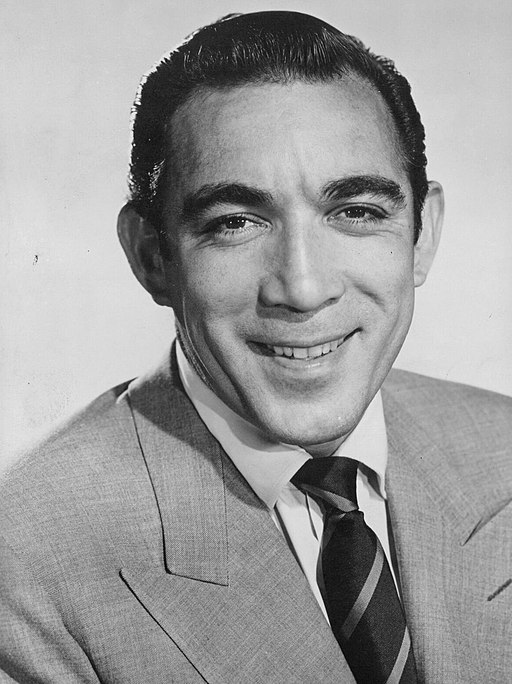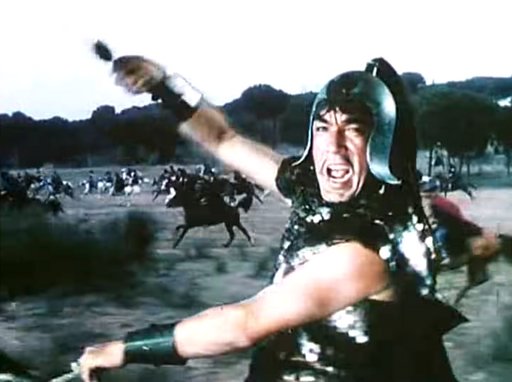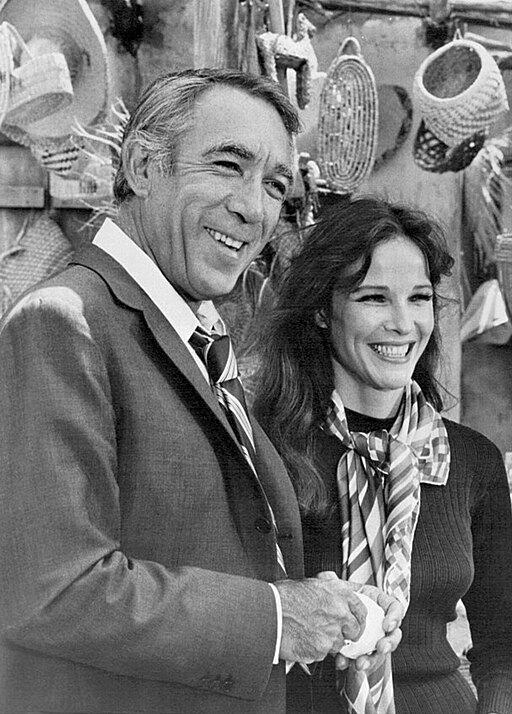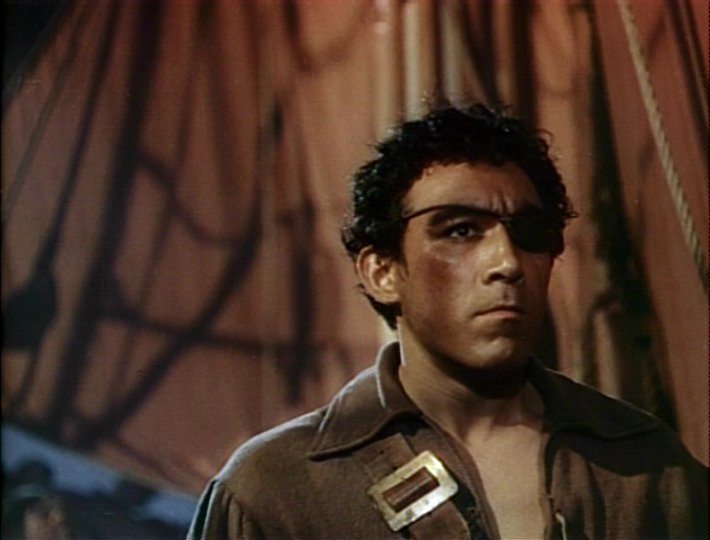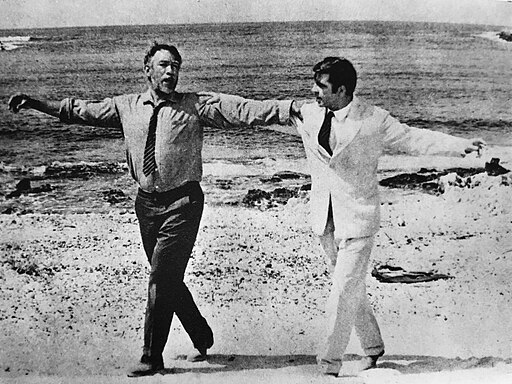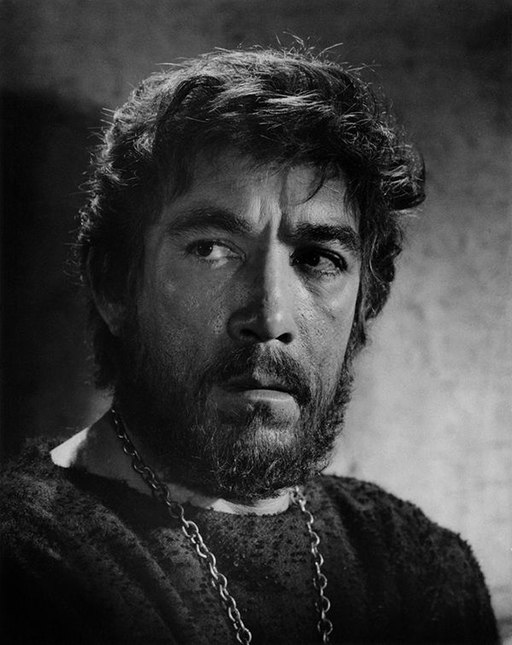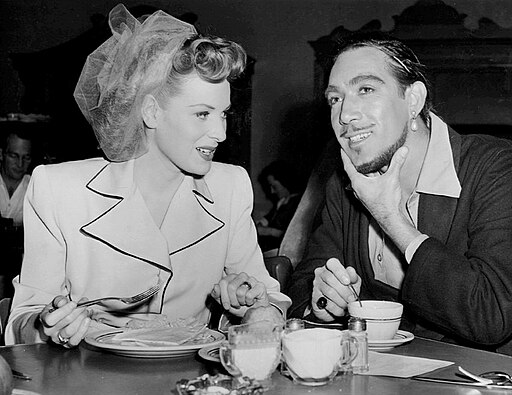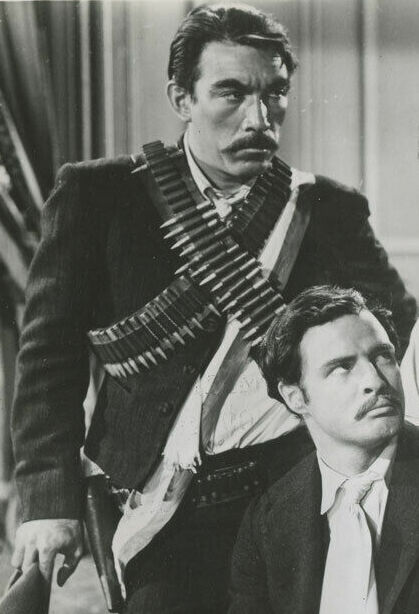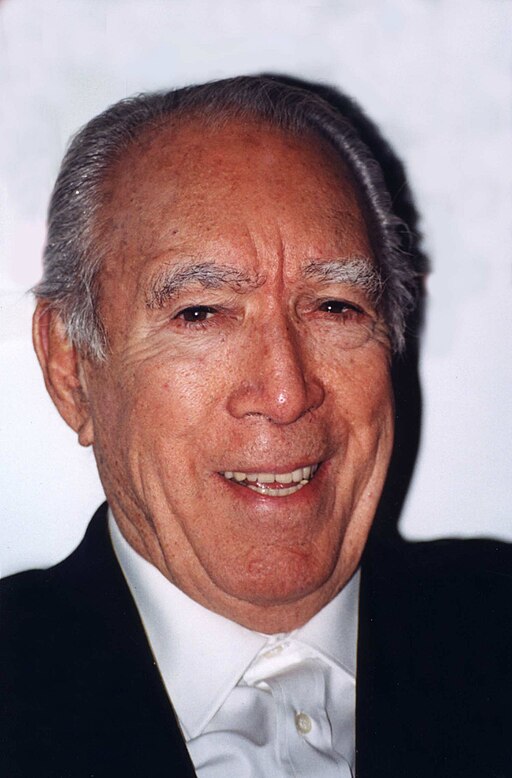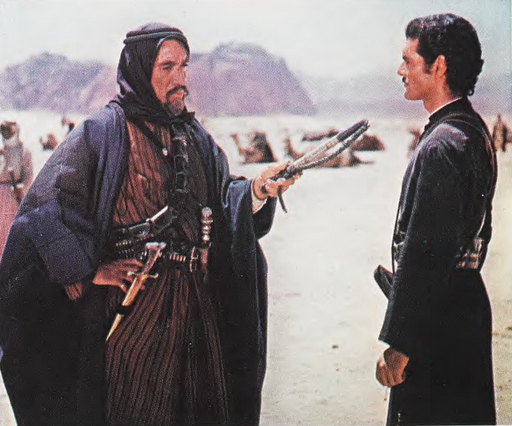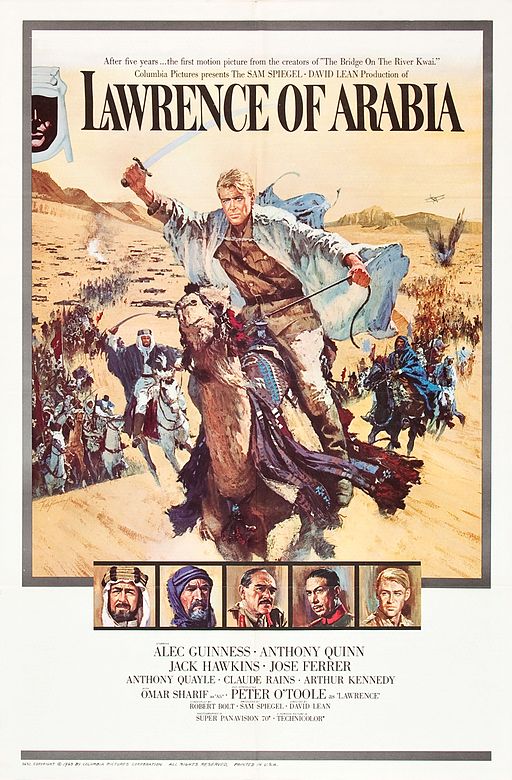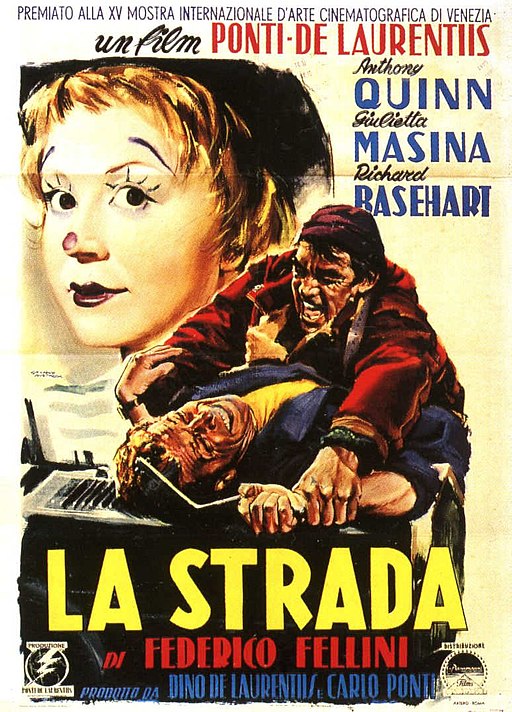Anthony Quinn
back| Full Name | Antonio Rodolfo Quinn Oaxaca |
| Stage Name | Anthony Quinn |
| Born | April 21, 1915 |
| Birthplace | Chihuahua, Mexico |
| Died | June 3, 2001 |
| Buried | Quinn Family Estate Bristol County, Rhode Island, U.S. |
| Married to | Katherine DeMille (1937–1965) -Jolanda Addolori (1966–1997) - Kathy Benvin (1997 until his death in 2001) |
| Children | Francesco - Lorenzo - Danny - Antonia - Valantina - Ryan - Catalina - Christopher - Alex - Christina - Duncan - Sean |
| Notable films | Viva Zapata! (1952) - Lust for Life (1956) - La Strada (1954) - Zorba the Greek (1964) - The Guns of Navarone (1961) - Lawrence of Arabia (1962) - Lion of the Desert (1981) |
Anthony Quinn
The Authentic Titan of Passion
Anthony Quinn's career spanned over six decades, with him taking on various roles that showcased his versatility as an actor. He was known for his ability to play characters of various ethnicities, which made him a go-to actor for international roles. His passionate and powerful performances earned him critical acclaim and a lasting legacy in the film industry.
Quinn's legacy extends beyond his film roles. He was also an accomplished painter and sculptor. His artistic works were exhibited in galleries worldwide. His life, marked by artistic versatility and a deep connection to his diverse cultural heritage, continues to inspire actors and artists alike.
Anthony Quinn was a cinematic titan, a man whose screen presence was as immense as the varied roles he portrayed. Known for his rugged features and intense gaze, Quinn brought a palpable authenticity to every character he played.
He was a chameleon of the screen, seamlessly transitioning across a spectrum of roles that defied ethnic and cultural boundaries. Whether he was embodying the passionate spirit of Zorba the Greek or the revolutionary fervor of Eufemio Zapata, Quinn's performances were marked by a raw, emotive power that resonated deeply with audiences.
Related
Anthony Quinn
Biography and Analysis of his Acting Career
A short Biography
Anthony Quinn, born Antonio Rodolfo Quinn Oaxaca on April 21, 1915, in Chihuahua, Mexico, had a life as vivid and varied as the characters he portrayed. The son of an Irish-Mexican father, Francisco Quinn, and a Mexican mother, Manuela Oaxaca, Quinn's early years were marked by upheaval. His family moved to Los Angeles during the Mexican Revolution, where he grew up in a diverse cultural environment.
Quinn's education at Polytechnic High School was followed by a brief stint studying architecture under the renowned architect Frank Lloyd Wright. This experience not only honed his artistic sensibilities but also paved the way for his future endeavors in painting and sculpture.
His journey into acting began in the 1930s with roles in theater, gradually transitioning to film. Quinn's early film career was characterized by minor roles, often typecast as ethnic villains.
However, his breakthrough came with the 1952 film "Viva Zapata!", where he played Eufemio Zapata. This role earned him his first Academy Award, marking the start of a new chapter in his career. Quinn's portrayal of Paul Gauguin in the 1956 film "Lust for Life" further established his reputation, earning him a second Oscar.
Quinn's personal life was as dynamic as his career. He was married three times, first to Katherine DeMille from 1937 to 1965, with whom he had five children. His second marriage was to Jolanda Addolori, a costume designer he met on a film set, resulting in three children. His final marriage, to Kathy Benvin in 1997, lasted until his death and produced two children.
In total, Quinn fathered 13 children, including from extramarital relationships, embodying a life filled with passion and complexity.
Beyond acting, Quinn was a talented painter and sculptor, with his works exhibited around the globe. His autobiography, "The Original Sin," provides an insight into his vibrant life and career. A man of diverse interests and talents, Quinn was also an active advocate for the arts and cultural diversity.
Quinn's life came to an end on June 3, 2001, in Boston, Massachusetts. He succumbed to respiratory failure linked to throat cancer, leaving behind a rich legacy in both Hollywood and international cinema.
His ability to transcend ethnic stereotypes and bring depth to every character he played made him a cultural icon. Anthony Quinn's story, from a struggling actor to a celebrated two-time Academy Award winner, remains an enduring tale of talent, resilience, and passion.
Notable Movies featuring Anthony Quinn:
1940s to 1950s
- "The Ox-Bow Incident" (1943): In this Western, Quinn plays Juan Martínez, a man involved in a posse formed to find the murderer of a local man.
- "Viva Zapata!" (1952): Quinn portrays Eufemio Zapata, brother of Mexican revolutionary Emiliano Zapata. His performance won him an Academy Award for Best Supporting Actor.
- "La Strada" (1954): An Italian drama directed by Federico Fellini, where Quinn plays Zampanò, a traveling strongman in a circus.
- "Lust for Life" (1956): In this biographical film about Vincent Van Gogh, Quinn portrays Paul Gauguin, Van Gogh's friend and rival. This role earned him another Academy Award.
1960s
- "The Guns of Navarone" (1961): Quinn plays a Greek resistance fighter in this World War II film about a team sent to destroy a German fortress.
- "Lawrence of Arabia" (1962): In this epic historical drama, he portrays Auda abu Tayi, an Arab tribal leader allied with T.E. Lawrence.
- "Zorba the Greek" (1964): One of his most iconic roles, Quinn plays Alexis Zorba, a charismatic Greek working man with a philosophical outlook on life.
- "The Shoes of the Fisherman" (1968): Playing a Russian archbishop who becomes Pope, this film explores the geopolitical challenges of the papacy.
1970s and 1980s
- "The Message" (1976): In this historical drama, Quinn portrays Hamza, uncle of the Islamic prophet Muhammad.
- "Lion of the Desert" (1981): He stars as Omar Mukhtar, a Libyan leader fighting against the Italian colonization of Libya.
1990s
- "Mobsters" (1991): Set in the 1920s, Quinn plays Mafia boss Joe Masseria in this crime film about the rise of some of the most notorious gangsters in American history.
- "A Walk in the Clouds" (1995): In this romantic drama, Quinn plays Don Pedro Aragón, the head of a family-owned vineyard in post-World War II California.
Remarkable Quotes from Anthony Quinn:
On His Artistic Philosophy:
"I don't believe in having one drive to be successful. I believe in being in love with your life, every minute of it."
Reflecting on Life and Death:
"I see life as a dance. Does the dance ever end? Does the music ever stop? I don't think so."
Regarding His Craft:
"In Europe, an actor is an artist. In Hollywood, if he isn't working, he's a bum."
On Embracing Various Roles:
"I never get the girl. I wind up with a country instead."
About Personal Growth and Change:
"It's not the years in your life that count. It's the life in your years."
On His Approach to Acting:
"Acting is just being a man. Being human. Not forcing it."
Discussing His Heritage and Career:
"I am Mexican, Bulgarian, Greek, Irish, English, Spanish. I am a citizen of the world. Life and cinema are not two separate things for me."
Analysis of Anthony Quinn’s Acting Style:
Anthony Quinn's acting style was distinguished by its versatility, intensity, and authenticity, which contributed to his lasting impact on the world of cinema. Here's an analysis of the key elements of his acting style:
Emotional Intensity and Depth
- Passionate Performances: Quinn was known for his ability to infuse his characters with a deep sense of passion and emotional intensity. Whether playing a tragic figure or a jubilant one, he brought a palpable sense of emotion to his roles.
- Complex Characters: He often portrayed complex, multi-layered characters. His performances went beyond surface-level portrayals, delving into the psyche and emotional depth of his characters.
Physicality and Presence
- Strong Physical Presence: Quinn's performances were often marked by a robust physical presence. He used his body language effectively to convey the essence of his characters, whether it was the strength of a revolutionary leader or the vivacity of Zorba the Greek.
- Facial Expressions: His expressive face added depth to his performances, communicating unspoken emotions and thoughts.
Cultural Versatility and Adaptability
- Diverse Roles Across Cultures: Quinn's ability to play characters from various ethnic and cultural backgrounds was a hallmark of his career. He convincingly portrayed characters of different nationalities, transcending ethnic stereotypes prevalent in Hollywood at the time.
- Language and Accent: He skillfully adopted accents and linguistic nuances, further enhancing the authenticity of his international roles.
Emotional Resonance and Relatability
- Relatable Characters: Despite often playing larger-than-life figures, Quinn had a knack for making them relatable. Audiences could connect with the humanity and vulnerability he brought to his roles.
- Emotional Range: He displayed a wide emotional range, capable of portraying joy, sorrow, rage, and contemplation with equal believability.
Legacy and Influence
- Breaking Stereotypes: Quinn's career helped pave the way for actors of diverse backgrounds, challenging the Hollywood norm of casting based on ethnicity.
- Artistic Influence: His style influenced both contemporary and future actors, showcasing the power of versatile, emotionally driven performances.
Awards and Nominations:
Academy Awards (Oscars)
- 1953: Won Best Supporting Actor for "Viva Zapata!"
- 1957: Won Best Supporting Actor for "Lust for Life"
- 1958: Nominated for Best Actor for "Wild Is the Wind"
- 1965: Nominated for Best Actor for "Zorba the Greek"
Golden Globe Awards
- 1957: Won Best Supporting Actor for "Lust for Life"
- 1965: Nominated for Best Actor – Motion Picture Drama for "Zorba the Greek"
- 1987: Won Cecil B. DeMille Award for lifetime achievement
BAFTA Awards
- 1957: Nominated for Best Foreign Actor for "Lust for Life"
- 1965: Nominated for Best Foreign Actor for "Zorba the Greek"
Cannes Film Festival
- 1957: Won Best Actor for "Lust for Life"
Other Notable Recognitions
- Emmy Awards: Nominated for his work in television.
- Hollywood Walk of Fame: Quinn has two stars on the Hollywood Walk of Fame for his contributions to motion pictures and television.
- National Board of Review: Received awards and accolades for his performances in various films.
- Film Festival Honors: Honored at various international film festivals throughout his career for his contributions to cinema.
Posthumous Honors
- After his death, Quinn continued to be recognized for his significant contributions to film and the arts. Various film festivals and institutions have paid tribute to his legacy.
Biography Anthony Quinn on YouTube:
In this great documentary on YouTube you get a personal account of the life and career of Anthony Quinn:
Significance of Anthony Quinn’s performance in “Viva Zapata!”:
Anthony Quinn's role in "Viva Zapata!" (1952) was a defining moment in his career, marking a significant turning point both in terms of critical recognition and the types of roles he was subsequently offered.
Breakthrough Role: Prior to "Viva Zapata!," Quinn was often typecast in minor roles, typically as ethnic villains or side characters in Hollywood films. His portrayal of Eufemio Zapata, the brother of the Mexican revolutionary leader Emiliano Zapata, provided him with a substantial and complex character, allowing him to showcase his depth as an actor.
Academy Award Win: Quinn's performance earned him the Academy Award for Best Supporting Actor. This win was not only a personal triumph but also a historical one, as it made him the first Mexican-American actor to win an Oscar. This accolade helped to break ethnic stereotypes in Hollywood and opened the door for more diverse roles in his future.
Establishing Acting Credentials: The success of "Viva Zapata!" elevated Quinn's status in Hollywood. It proved that he could deliver powerful performances in leading roles, and as a result, he began to receive more substantial and varied offers. This transition was critical for an actor who had been battling typecasting for years.
International Recognition: The film's success and Quinn's award-winning performance increased his visibility and credibility internationally. It positioned him as a versatile and serious actor, capable of handling complex roles in major productions.
Impact on Future Roles: The acclaim Quinn received for "Viva Zapata!" opened up opportunities to play a wider range of characters, including leads in prestigious projects. It set the stage for his later iconic roles, such as Paul Gauguin in "Lust for Life" (1956) and the titular character in "Zorba the Greek" (1964).
Legacy and Influence: This role not only solidified Quinn's career but also had a broader cultural impact. It challenged Hollywood's limited portrayal of Mexican and Mexican-American characters, paving the way for more nuanced and respectful representations in the industry.
In summary, Anthony Quinn's role in "Viva Zapata!" was a watershed moment in his career. It marked his transition from a character actor to a leading man, helped to dismantle ethnic typecasting in Hollywood, and laid the groundwork for a career that would be both varied and distinguished.
Quinn's Role in "Zorba the Greek":
- Character Portrayal: Quinn played Alexis Zorba, a character full of life, passion, and an unbridled zest for living. Zorba is a boisterous, earthy character who embodies the spirit of Greek life and culture. His philosophical outlook, combined with his love for dance, music, and living in the moment, make him a memorable and endearing figure.
- Physicality and Authenticity: Quinn's performance was marked by a dynamic physicality and authenticity. His famous dance scene in the film captures the essence of his character's spirit, demonstrating Quinn's ability to use body language and movement to convey a character's inner world.
Impact of the Role
- Cultural Representation: "Zorba the Greek" brought Greek culture to the forefront of international cinema. The film, based on Nikos Kazantzakis's novel, was a significant portrayal of Greek life and philosophy, with Zorba's character encapsulating the joie de vivre of the Greek spirit.
- Critical Acclaim: The film received widespread acclaim and was nominated for several Academy Awards, including Best Actor for Quinn. His portrayal of Zorba was hailed as a career-best performance and is often considered one of the greatest in film history.
- Influence on Greek Tourism: The film's success had a tangible impact on Greek tourism, with many visitors drawn to the country by the idyllic and vibrant portrayal of Greek life and landscapes in the movie.
- Cultural Icon: Zorba's character became a cultural icon, synonymous with a particular kind of freedom and joy in living. The image of Quinn dancing the sirtaki, a dance choreographed for the film, became an iconic representation of Greek culture.
Legacy
Anthony Quinn's portrayal of Zorba the Greek is a standout example of an actor becoming almost synonymous with a character. The role highlighted his ability to fully immerse himself in a character and culture, showcasing his remarkable talent for bringing depth and vibrancy to his performances. The film and Quinn's portrayal of Zorba have left an enduring legacy, both in cinema and in the popular imagination of Greek culture.
Full list of Movies featuring Anthony Quinn:
1930s
- 1936 - Parole
- 1936 - The Milky Way
- 1936 - Swing High, Swing Low
- 1936 - Night Waitress
- 1937 - The Plainsman
- 1937 - Waikiki Wedding
- 1937 - Partners in Crime
- 1937 - The Last Train from Madrid
- 1937 - Daughter of Shanghai
- 1937 - Bulldog Drummond at Bay
- 1938 - The Buccaneer
- 1938 - Hunted Men
- 1938 - Tip-Off Girls
- 1938 - Dangerous to Know
- 1938 - King of Alcatraz
- 1938 - Road to Singapore
- 1939 - Union Pacific
- 1939 - Island of Lost Men
- 1939 - Television Spy
- 1939 - King of Chinatown
- 1939 - Emergency Squad
- 1939 - The Forgotten Woman
1940s
- 1940 - Road to Singapore
- 1940 - Parole Fixer
- 1940 - The Ghost Breakers
- 1941 - The Texas Rangers Ride Again
- 1941 - Thieves Fall Out
- 1941 - Blood and Sand
- 1941 - They Died with Their Boots On
- 1942 - The Perfect Snob
- 1942 - Road to Morocco
- 1943 - The Ox-Bow Incident
- 1943 - Guadalcanal Diary
- 1944 - Buffalo Bill
- 1944 - Irish Eyes Are Smiling
- 1945 - China Sky
- 1945 - Back to Bataan
- 1945 - Where Do We Go from Here?
- 1946 - California
- 1946 - Sinbad the Sailor
- 1947 - The Imperfect Lady
- 1947 - Black Gold
- 1947 - Tycoon
- 1948 - The Pearl
- 1949 - We Were Strangers
- 1949 - Any Number Can Play
1950s
- 1950 - The Brave Bulls
- 1950 - City for Conquest
- 1951 - Mask of the Avenger
- 1952 - The World in His Arms
- 1952 - Against All Flags
- 1952 - Viva Zapata!
- 1953 - East of Sumatra
- 1953 - Seminole
- 1953 - Ride, Vaquero!
- 1953 - City Beneath the Sea
- 1954 - La Strada
- 1954 - Attila
- 1954 - Ulysses
- 1955 - The Magnificent Matador
- 1955 - Seven Cities of Gold
- 1956 - Lust for Life
- 1956 - The Hunchback of Notre Dame
- 1956 - Man from Del Rio
- 1957 - Wild Is the Wind
- 1957 - The River's Edge
- 1958 - The Black Orchid
- 1958 - Hot Spell
- 1959 - Warlock
- 1959 - Last Train from Gun Hill
1960s
- 1960 - Portrait in Black
- 1961 - The Guns of Navarone
- 1961 - Barabbas
- 1962 - Lawrence of Arabia
- 1962 - Requiem for a Heavyweight
- 1964 - Behold a Pale Horse
- 1964 - Zorba the Greek
- 1965 - Marco the Magnificent
- 1966 - Lost Command
- 1967 - The 25th Hour
- 1968 - The Shoes of the Fisherman
- 1969 - The Secret of Santa Vittoria
1970s
- 1970 - A Dream of Kings
- 1971 - The City
- 1971 - Flap
- 1972 - Across 110th Street
- 1972 - The Don Is Dead
- 1973 - Deaf Smith & Johnny Ears
- 1974 - The Marseille Contract
- 1976 - The Inheritance
- 1976 – The Message
- 1979 – The Passage
-
1980’s
- 1981 – Lion of the Dessert
- 1982 – Regina Roma
- 1983 – Valentina
- 1987 – Stradivari
- 1989 – Ghosts Can Do It
- 1989 – Revenge
-
1990’s
- 1990 – A Man of Passion
- 1991 – Mobsters
- 1994 – Somebody of Love
- 1995 – A Walk in the Clouds
- 1996 – Gotti
- 1999 - Oriundi

